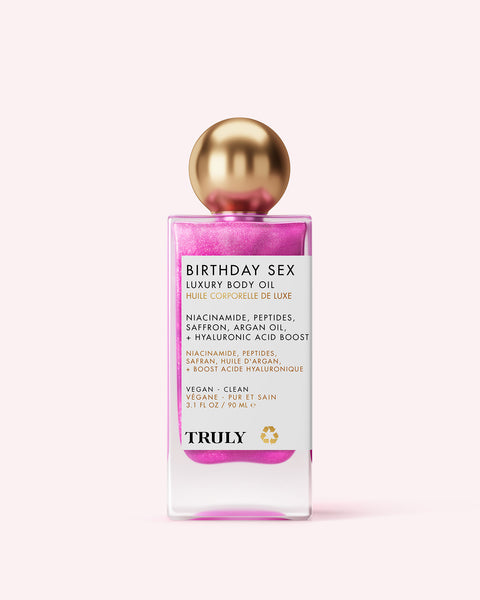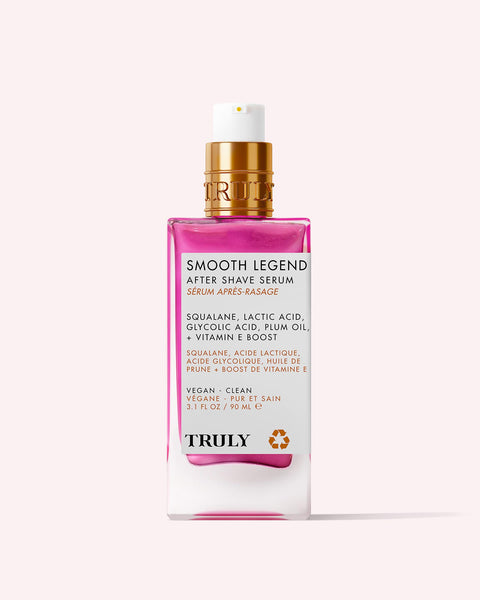How Poor Nutrition Makes Your Skin Dry

Discover how poor nutrition makes your skin dry and what you can do about it.
Dry skin can be frustrating and uncomfortable. If it feels like no amount of moisturizer can defeat the dryness, you might want to look at your diet. Diet affects skin more than you’d probably expect.
After all, your skin is the body’s largest organ, and it relies on a balanced diet to stay hydrated, smooth, and healthy. Dermatologists often point out that poor nutrition can lead to various skin problems, including eczema, psoriasis, and dermatitis.
Ahead, we explore how poor nutrition might be contributing to dry skin and what you can do about it.
Can Poor Nutrition Cause Dry Skin?
Yes, poor nutrition can indeed cause dry skin. Your skin needs specific vitamins, minerals, and healthy fats to maintain its natural moisture barrier. Without these nutrients, it’s more difficult for your skin to stay hydrated and supple, leading to dryness.
For example, a diet lacking in omega-3 fatty acids, which are found in foods like salmon, walnuts, and flaxseeds, can result in dry and flaky skin. Similarly, deficiencies in vitamins like A, C, and E can weaken your skin’s protective barrier and reduce its ability to retain moisture. Vitamin D is another essential nutrient that impacts skin health and can prevent issues like eczema and psoriasis.
Another important factor is hydration. If you’re not drinking enough water, your skin will show it. Dehydration can cause your skin to lose its elasticity and become rough and dry. Dermatology experts also highlight the role of glycemic and anti-inflammatory foods in maintaining healthy skin, as sugary and processed foods can worsen dryness by increasing oxidative stress and free radicals.
Shop Skincare for Dry Skin
How Poor Nutrition Makes Your Skin Dry
Poor nutrition impacts your skin’s health in several ways. Here’s how diet affects skin and why it may be causing dry skin.
1. Weakens the Skin Barrier
Your skin barrier acts as a shield, protecting you from environmental damage while locking in moisture. A diet lacking essential fatty acids can compromise this protective barrier, making your skin more prone to dryness.
2. Reduces Natural Oil Production
Certain nutrients, such as vitamin E and zinc, play a critical role in maintaining your skin’s natural oil balance. Without enough of these, your skin may become dry and irritated. Sebum production can also decrease with poor nutrition, further leading to dryness.
3. Decreases Collagen and Elastin Levels
Collagen and elastin are essential for keeping your skin smooth, firm, and hydrated. Poor nutrition, especially a lack of vitamin C, can lead to a decrease in collagen production, which may result in drier, less elastic skin.
4. Affects Hormonal Balance
Your diet influences your hormones, which in turn affect your skin. A lack of essential nutrients can lead to hormonal imbalances that exacerbate dry skin conditions. According to dermatologists, hormonal disruptions can also trigger flare-ups in conditions like acne and rosacea.
Best Foods for Dry Skin

Now you know how poor nutrition makes your skin dry. Here are some of the best foods for promoting overall skin health and combating dryness.
1. Fatty Fish
Salmon, mackerel, and sardines are all chock full of omega-3 fatty acids that help strengthen your skin’s barrier and keep it hydrated. These are also rich foods in selenium, which helps reduce oxidative stress and prevent sun damage.
2. Avocados
Rich in healthy fats and vitamin E, avocados nourish your skin from the inside out. They help to plump and hydrate your skin, leaving it softer and smoother.
3. Nuts and Seeds
Walnuts, almonds, and flaxseeds are great sources of essential fatty acids and antioxidants that promote skin hydration. They also support your immune system and help combat skin aging.
4. Sweet Potatoes
Sweet potatoes are loaded with beta-carotene, a type of carotenoid that your body converts to vitamin A. This nutrient is crucial for repairing dry, damaged skin.
5. Leafy Greens
Spinach, kale, and other leafy greens provide vitamins A and C, which are vital for collagen production and skin repair. They also combat free radicals that cause skin problems such as fine lines, wrinkles, and hyperpigmentation.
6. Water-Rich Fruits
Fruits like watermelon, cucumber, blueberries, and oranges help boost your hydration levels, making them ideal for dry skin. Citrus fruits are particularly good due to their high vitamin C content.
7. Whole Grains
Whole grains provide complex carbohydrates and antioxidants that improve overall skin health and combat oxidative stress.
@trulybeauty which are you choosing? 👀#skincareserums #dehydration #dryskin #facial #beautymusthaves #texturedskin ♬ original sound - zyan
Can You Get Dry Skin From Not Eating Enough?
According to experts, not eating enough can lead to dry skin. When your body doesn’t receive adequate nutrients, it prioritizes vital organs over your skin, leading to a depletion of the vitamins and minerals your skin needs to stay healthy.
In addition, calorie restriction can slow down your metabolism, reducing your body’s ability to absorb nutrients effectively, which can lead to dry, dull skin.
Crash diets or prolonged periods of insufficient calorie intake can also deplete your body of essential fatty acids and hydration, further exacerbating dry skin issues. That’s why it’s imperative to follow a healthy diet.
Can Diet Improve Dry Skin?
The good news is that you can improve dry skin by making dietary changes. Eating a balanced diet rich in essential fatty acids, vitamins, and minerals can help restore your skin’s natural moisture levels. Here are some additional tips for treating dry skin with diet.
Focus on Balanced Nutrition
Make sure your meals include a mix of healthy fats, lean proteins, and complex carbohydrates. Studies show that a healthy, balanced diet includes plenty of plant-based foods, including fruits, vegetables, whole grains, seeds, and nuts, and less animal-based products.
Supplement When Necessary
If you’re struggling to get enough nutrients from food alone, consider taking supplements like fish oil or a multivitamin that includes skin-friendly nutrients such as vitamin A, vitamin E, and zinc. Speak to your healthcare provider before supplementing.
Stay Hydrated
Hydration is key to keeping your skin looking and feeling its best. Aim for at least 8 glasses of water a day. If you get fed up of water, try adding herbal teas or water-rich fruits into your daily routine.
Your skin reflects your overall health, and poor nutrition is one of the biggest culprits behind dry, flaky skin. By making simple dietary changes and prioritizing hydration, you can significantly improve your skin’s moisture levels and ultimately alleviate dryness.
Pairing these changes with high-quality skincare products can help you diminish dry skin once and for all. At Truly Beauty, you’ll find a wide selection of high performance, luxurious skin and body care products to leave you looking and feeling your best.
Photos by Yaroslav Shuraev and Thought Catalog, Pexels
















